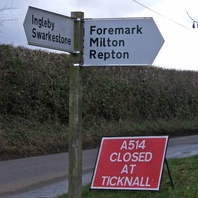
Viking Names
Foremark
Foremark, in the Repton and Gresley Hundred of Derbyshire, is a Scandinavian compound formed from the Old Norse elements forn ‘old’ and verk ‘work’. Thus, ‘old fortification’. The element verk undoubtedly was used in the Danelaw to describe a military or defensive structure; however, the element does not appear to be found in Scandinavian place-names. The place-name corresponds to the Old English place-name type Aldwark ‘old fortification’. One Aldwark is located in the Wirksworth Hundred of Derbyshire, and is situated near The Street, a Roman road, and Portway. Similarly a short distance east of Wall Hill and Foremark are raised earth formations, which perhaps could be the site of the original fortification. Furthermore, Foremark is very close to a known Great Heathen Army winter camp at Repton. Recent work by Dr Catrine Jarman has raised the possibility that Foremark is somehow related to that site, as outlined in a 2019 television programme, Britain’s Viking Graveyard.
Read More
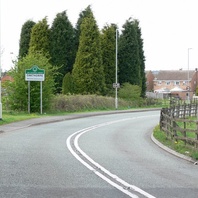
Viking Names
Oakthorpe
Oakthorpe, historically belonging to the Repton and Gresley Hundred of Derbyshire, probably comes from the Old Norse male personal name Áki (genitive singular Áka) and the Old Norse element þorp ‘outlying farm, settlement’. Alternatively the first element of the place-name could be Old English ac ‘oak tree’; however, it is more likely that the Old Norse personal name became confused with this Old English appellative. Oakthorpe is a joint parish with Donisthorpe and they were both transferred to Leicestershire in 1897.
Read More
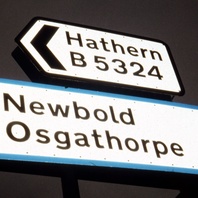
Viking Names
Osgathorpe
Osgathorpe, in the West Goscote Hundred of Leicestershire, comes from the Old Danish male personal name Asgot (Old Norse Ásgautr) and the Old Norse element þorp ‘outlying farm, settlement’. Some later forms of the name show replacement by the Norman male personal name Angod. In the neighbouring Thringstone in Coalville parish, the field-names Ossegodishaug and Hosgothawe (with Old English haga or Old Norse hagi ‘enclosure’) presumably record the same owner of land.
Read More
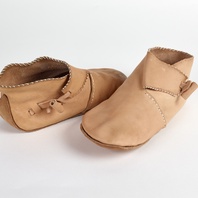
Viking Objects
Reproduction Shoes
A pair of leather turnshoes based on examples found at Coppergate, York. The shoes are vegetable tanned and fastened by a toggle on the side.
Read More
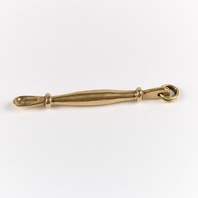
Viking Objects
Reproduction Ear Scoop
An ear scoop (or ear spoon) was a common personal hygiene tool, used for cleaning out the ears. Ear spoons are known from Roman times onwards. They are very common finds on Viking Age sites, suggesting that people took this aspect of personal hygiene very seriously.
Read More
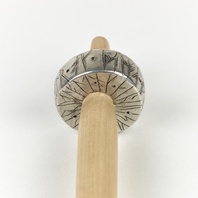
Viking Objects
Reproduction Drop Spindle
A reproduction of a lead alloy spindle whorl with a runic inscription, modelled on a find from Saltfleetby St Clement, Lincolnshire. Fibres were spun into thread using a drop-spindle of which the whorls were made of bone, ceramic, lead, or stone and acted as flywheels during spinning.
Read More
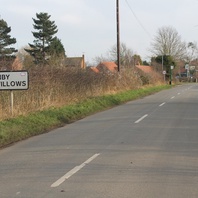
Viking Names
Barnby in the Willows
Barnby in the Willows, in the Newark Wapentake of Nottinghamshire, most likely comes from the Old Norse elements barn ‘child’ and by ‘farm, settlement’. Its meaning, ‘farmstead of the children’, may indicate joint inheritance by the offspring. Alternatively, the first element of the name could come from the Old Danish male personal name Barni. The affix is added at a later date and means ‘among the willow-trees’ and could be connected to its low location by the river Witham. The place-name has the same etymology as Barnby Moor, in the Bassetlaw Wapentake of Nottinghamshire.
Read More
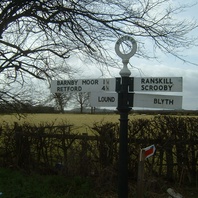
Viking Names
Ranskill
Ranskill, in the Bassetlaw Wapentake of Nottinghamshire, probably comes from the Old Norse male personal name Hrafn (which is also the word for ‘raven’) and the Old Norse element skjalf ‘seat, ledge, slope’. It is on a slight slope above the level ground.
Read More

Viking Names
Revesby
Revesby, in the Bolingbroke Wapentake of Lincolnshire, comes from the Old Norse male personal name Refr (which is also the word for ‘fox’) and the Old Norse element by ‘farm, settlement’.
Read More
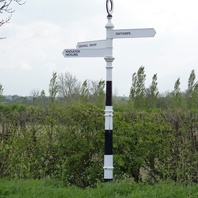
Viking Names
Owthorpe
Owthorpe, in the Bingham Wapentake of Nottinghamshire, comes from the Old Norse male personal name Úfi and the Old Norse element þorp ‘a secondary settlement, a dependent outlying farmstead or hamlet’.
Read More

Viking Names
Grainsby
The first element of Grainsby, in the Haverstoe Wapentake of Lincolnshire, is of uncertain origin. It is likely the Old Norse male byname Grein, Old East Scandinavian Gren, from Old Norse grein, Old Danish gren ‘a branch’. Alternatively the element could be the Old Norse appellative grein ‘a branch (of a tree); a fork (of a river)’. This word survives in dialect as ‘a small valley forking off from another’, but there is nothing in the topography of Grainsby that supports this sense. The second element is Old Norse by ‘a farmstead, a village’.
